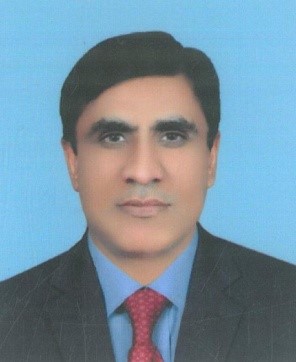Invited Speaker

Dr. Abdul Majeed Nadeem
Assistant Professor, Government College University Faisalabad, PakistanSpeech Title: Understanding the Environmental Performance for Sustainability in Asian Countries
Abstract: The rapid pace of growth in different sectors of the global economy has resulted in a wider range of negative environmental consequences and as a result of this, the focus of scientific communities, worldwide, has been directed to seek a balance between socio-economic, political and environmental conditions. A series of efforts have been agreed upon and implemented globally for environmental protection by the United Nations (UN) since the “Declaration of the UN conference on Human Environment” in 1972. Under the 2030 Agenda for Sustainable Development, the countries are now answerable to its citizens to provide information on their environmental policies for pollution control and natural resource management to ensure national sustainability. The environmental outcome of a country depends on its industrial and services sectors, and the evaluating factors held responsible for environmental performance plays a crucial role in policy development as well as the measurement of policy outcomes for the country. Thus, analyzing the Environmental Performance will provide a strong base for effective policy making to ensure environmental progress and maximizing the rate of return on investment in environmental management to ensure environmental sustainability. The effects of environmental change are rising, and no part of the world is immune. Asia is the biggest continent globally with regard to land and population having the world’s most carbon emission countries and polluted cities. Due to the radical increase in CO2 emissions, the Asian region is facing rigorous issues of biodiversity loss, decrease in agriculture yield, accessibility of clean and safe drinking water, and deforestation putting drastic negative impacts on the environmental performance. Countries’ welfare is also correlated with environmental performance thus the aim of economic policies should be to ensure environmental sustainability without hampering economic development. Keeping in view this issue, the current study aims at evaluating the determinants of environmental performance in order to evaluate the outcome of various efforts done so far for environmental improvement in 34-Asian countries using data period of 2006-2017. The most updated panel study techniques are employed. The existence of cross sectional dependence (CD) in panel countries is confirmed by CD tests. The results of the second generation panel unit root test lead to apply the Westerlund panel co integration test, which confirms the long-run co integration in selected variables in the panel countries. To explore the direction of causal association among variables, Augmented Granger Causality test with error correction term is applied for long- run association. A bi-directional causality between Environmental Performance Index (EPI) and Gross Domestic Product while uni-directional causality between EPI and forest area is founded. A feedback hypothesis between environmental performance and renewable energy while conservation hypothesis between EPI and food production index holds. The Fully Modified Ordinary Least Square (FMOLS) estimation technique was used for the estimation of long-run elasticity coefficients to tackle the problem of endogeneity and serial correlation. The results show that renewable energy and forest area significantly improve while food production index and fertilizer use significantly reduce the environmental performance in Asian countries. The introduction of eco-innovations in production technologies, eco-friendly methods in agriculture sector and forest area enhancement is suggested for improving environmental performance in the region.
Biography: Dr. Abdul Majeed Nadeem is an environmental economist by training. He holds a PhD in Economics with specialization in Population, Resource, and Environmental Economics from Shandong University, China. Currently he is serving as Assistant Professor of Economics at Government College University Faisalabad, Pakistan. His areas of research interest are climate change, environmental degradation, and environmental compliance assurance for resource use efficiency and sustainability.